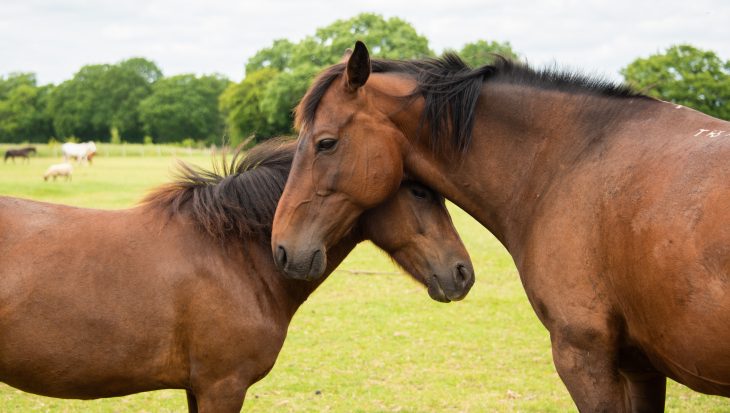The research programme to tackle major human diseases by breeding and experimenting on genetically modified mice has become ‘frenzied, scientifically irrational and terrifyingly cruel’, according to Animal Aid, which today (February 13) publishes a uniquely revealing report on the subject.
Also unveiled this week by the national campaign group is a short film containing shocking footage of some of the experiments described in the report.
At the heart of the GM mouse revolution is the premise that ‘reprogrammed’ rodents can act as reliable human surrogates in disease research. Science Corrupted: the nightmare world of GM mice systematically dismantles this supposition and, in doing so, lists numerous ‘promising’ therapies that worked effectively in the GM mouse ‘models’ but went on to fail decisively in patients with conditions such as Alzheimer’s, cancer and heart disease.
The squandering of precious scientific resources and consequent betrayal of human patients is expected to be of most concern to the general public. But the ‘terrifying and nightmarish’ suffering to which hundreds of thousands of GM mice are subjected every year in British laboratories(1), says the new report, is ‘inherently corrupting of the society that sanctions it’.
Science Corrupted, which was researched and written by Animal Aid’s Scientific Consultant Dr Adrian Stallwood (2), draws on mouse researchers’ own papers published in scientific journals. It describes animals who are genetically programmed to die from continuous seizures, or from massive internal bleeding due to the rupture of a major artery. It reports on other mice who are predisposed to groom themselves excessively until they rip their own skin, or repeatedly bite and pull the skin of cage mates. For many mice, the torment caused by genetic programming is just the start. They are also subjected to a seemingly limitless variety of obscenely cruel experiments.
Examples include GM female mice poisoned with salt to induce stroke, and who go on to suffer a range of disabilities before dying from brain haemorrhages. For depression studies, mice are dropped into beakers of water and monitored for several minutes as they move from frantic attempts to save themselves from drowning, to despair, defeat and immobility. Epilepsy ‘models’ have seizures triggered by being rapidly and repeatedly tossed in the air. The same effect is achieved in other mice by injecting acid into their abdomens, with some of these injected animals dying from uninterrupted fitting. In lung disease studies, mice are locked into plexiglass chambers and forced to inhale tobacco smoke. Other genetically manipulated animals must endure water deprivation, exposure to predators, rectal probes and electric shocks.
Mice share around 80 per cent of genes with human beings but the way those genes function and are regulated varies greatly in the two species – which is why humans and rodents look and behave so differently. Adding or subtracting a gene or two (the main alterations done to GM mice) does not overcome the fundamental biological disparities between humans and rodents, notes Science Corrupted. This is why researchers are unable to induce disease states in GM mice that are sufficiently similar to those experienced by people; and also why drugs and other treatments tried out on the mice often fail to function in the same way in human patients. (3)
Science Corrupted argues that the low cultural status of mice as ‘mere rodents’ does not justify their brutal treatment in research labs across Britain. ‘They might be small,’ says the report, ‘but their capacity to feel pain is as fully developed as any other mammal, human beings included.’
Most GM mice are created by transgenesis (the adding of a foreign gene) or by the knockout method (the disabling of one or more genes). Whichever method is used, the vast majority of progeny are killed. This is because they are born either with unintended malformations (such as limb deformities, emaciation, water on the brain or a swollen heart) or because the planned deformity is considered not useful after all. Many are also killed because they are ‘failures’ or surplus to requirements. Ultimately, for every GM mouse used in an experiment, hundreds of others die or are killed. Many of these junked mice don’t even receive the basic bureaucratic recognition of being reported in government statistics.
Says Animal Aid Director Andrew Tyler:
‘Science Corrupted lays bare for the first time the true scale and nature of the GM mouse revolution. It describes an enterprise that has turned into something frenzied, scientifically irrational and terrifyingly cruel. Until now, public discourse around the subject has been dominated by the soothing narrative of the practitioners. They claim that the GM mouse revolution is morally and medically justified. Our Scientific Consultant’s incisive and thoroughly researched report tells the real, appalling and macabre story.’
Editors’ Notes
- In 2011, GM mice were used in 1.5 million scientific ‘procedures’.
- Dr Adrian Stallwood MBBS is a specialty doctor in emergency medicine in West Wales, and a clinical teacher of medical undergraduates at Cardiff University.
- As important as genes might be, they represent a tiny fraction (about 2 per cent) of a person’s DNA that – in sum total – governs his or her development and functioning. Researchers used to regard the DNA that isn’t arranged into gene sequences as ‘junk’. Now, it is widely acknowledged by geneticists that DNA’s regulatory and ‘switching’ functions are fundamental, though still essentially mysterious.
Read Science Corrupted and watch a short film about GM mouse research, including footage of the type of experiments being conducted, at www.animalaid.org.uk/GMmice.
More information
- Contact Andrew Tyler: 01732 364 546. We have an ISDN line available for broadcast-quality interviews.
- For details of images used in Science Corrupted, please contact Animal Aid.

